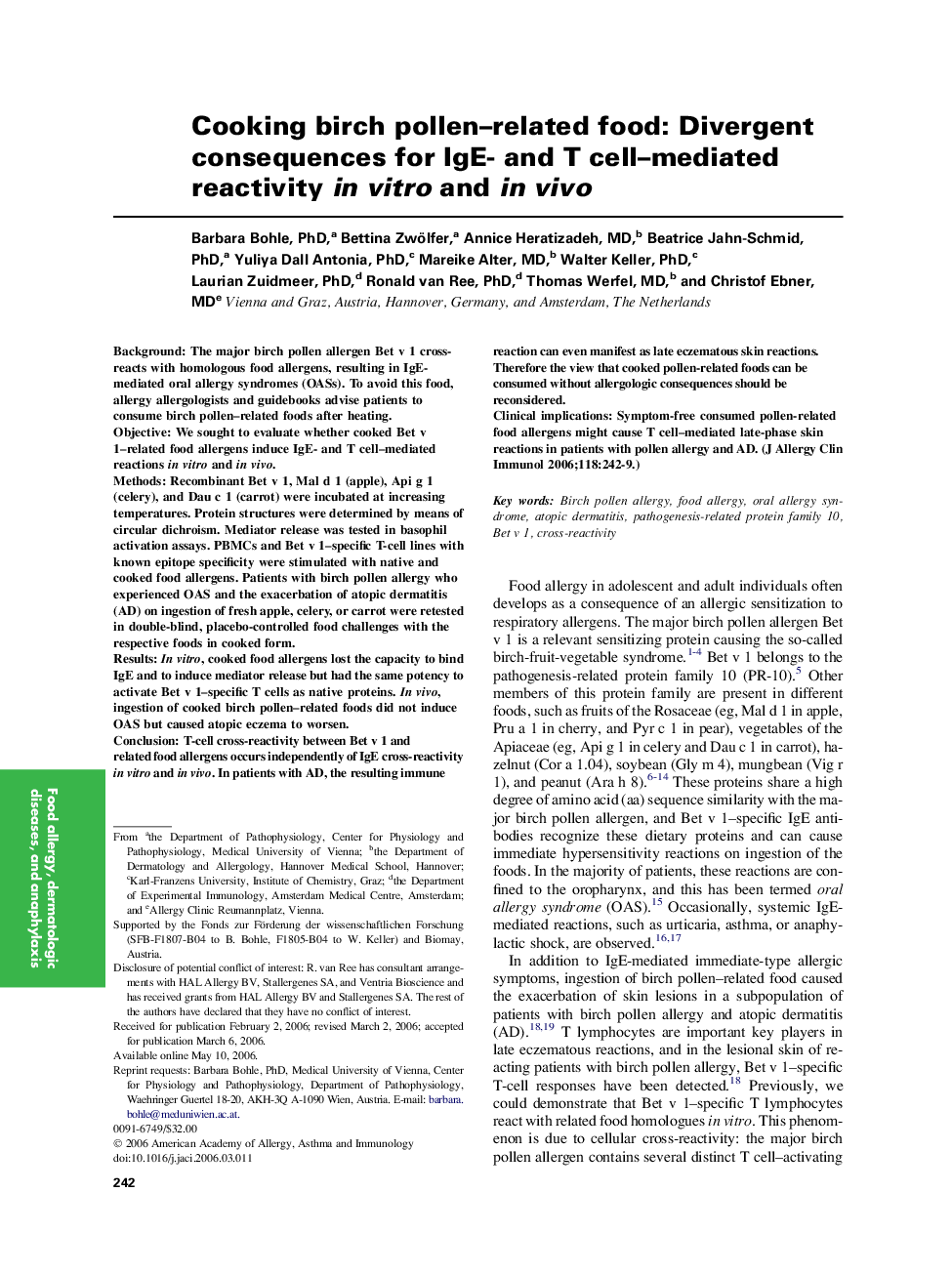| کد مقاله | کد نشریه | سال انتشار | مقاله انگلیسی | نسخه تمام متن |
|---|---|---|---|---|
| 3202513 | 1201973 | 2006 | 8 صفحه PDF | دانلود رایگان |

BackgroundThe major birch pollen allergen Bet v 1 cross-reacts with homologous food allergens, resulting in IgE-mediated oral allergy syndromes (OASs). To avoid this food, allergy allergologists and guidebooks advise patients to consume birch pollen–related foods after heating.ObjectiveWe sought to evaluate whether cooked Bet v 1–related food allergens induce IgE- and T cell–mediated reactions in vitro and in vivo.MethodsRecombinant Bet v 1, Mal d 1 (apple), Api g 1 (celery), and Dau c 1 (carrot) were incubated at increasing temperatures. Protein structures were determined by means of circular dichroism. Mediator release was tested in basophil activation assays. PBMCs and Bet v 1–specific T-cell lines with known epitope specificity were stimulated with native and cooked food allergens. Patients with birch pollen allergy who experienced OAS and the exacerbation of atopic dermatitis (AD) on ingestion of fresh apple, celery, or carrot were retested in double-blind, placebo-controlled food challenges with the respective foods in cooked form.ResultsIn vitro, cooked food allergens lost the capacity to bind IgE and to induce mediator release but had the same potency to activate Bet v 1–specific T cells as native proteins. In vivo, ingestion of cooked birch pollen–related foods did not induce OAS but caused atopic eczema to worsen.ConclusionT-cell cross-reactivity between Bet v 1 and related food allergens occurs independently of IgE cross-reactivity in vitro and in vivo. In patients with AD, the resulting immune reaction can even manifest as late eczematous skin reactions. Therefore the view that cooked pollen-related foods can be consumed without allergologic consequences should be reconsidered.Clinical implicationsSymptom-free consumed pollen-related food allergens might cause T cell–mediated late-phase skin reactions in patients with pollen allergy and AD.
Journal: Journal of Allergy and Clinical Immunology - Volume 118, Issue 1, July 2006, Pages 242–249